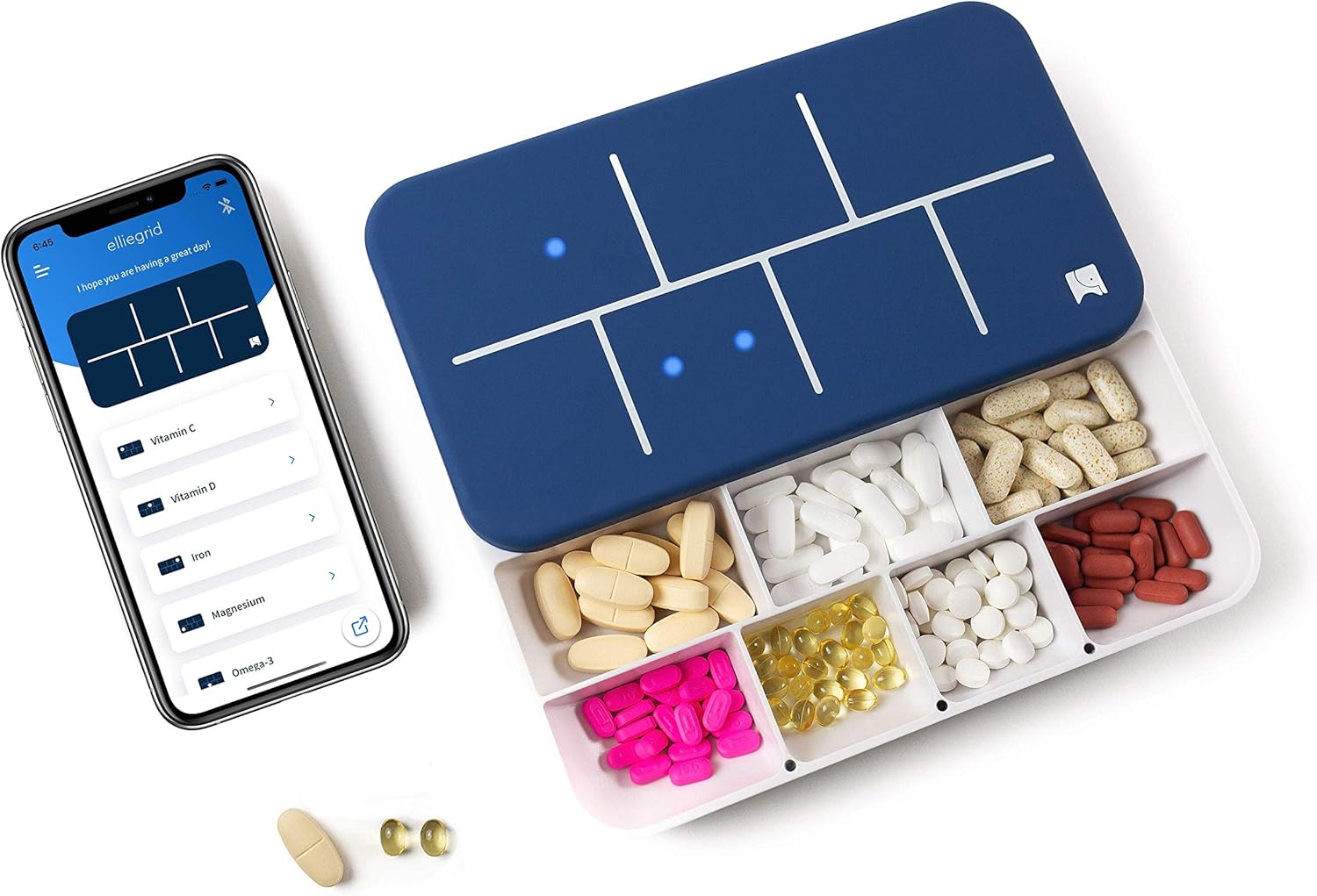Managing a senior adult’s medication is a big part of caregiving, but the sheer number of medications older adults take can be overwhelming. In fact, more than one-third of the prescriptions written in the United States are for those 65 and over, and the average older American is taking five medications at any time, with additional one-time prescriptions bringing the average yearly number to between nine and 13 different drugs.
For many older people, both managing medications and remembering to take them is difficult. It often falls to caregivers to create a system to keep medications organized and ensure they’re taken at the right time every day. And that responsibility is an important one, as Romilla Batra, MD, chief medical officer of SCAN Health Plan, explained for Fierce Healthcare:
“For older adults, the ability to remain independent and living at home may depend on the ability to manage a complicated medication regimen or have appropriate assistance. Non-adherence to medication regimens is a major cause of hospital admissions, readmissions and nursing home placement.”
To help with this effort, many caregivers are turning to an electronic pill dispenser, a tool for proper medication distribution that dispenses pills at pre-set, specified times. The dispenser can be refilled weekly or monthly to reduce the daily need for pill distribution and make it easy to check and see if your loved one has taken their pills. These are some of the best options:

Monthly pill organizer by Ellie
Unlike many other electronic pill dispensers, this one is designed to sort by type of pill, not daily dosage. Caregivers are notified via a smartphone app that the tablets have been taken and when the pill supply is running low.
- $149
- Room for monthly storage
- Alarmed notification reminder
- Portable
- Connects to a mobile app for refill reminders
- Not recommended for those with cognitive impairment
LiveFine 28-day automatic pill dispenser
LiveFine’s unique interchangeable dosage rings allow you to expand or reduce the number of pills each day. Also, the LCD display is extra-bright for visually impaired older adults who may have a hard time seeing smaller fonts in low light.
- $79.99
- Adjustable audio and visual alarms for those who are vision- and hearing-impaired
- Up to nine alarms per day
- Battery-operated
- Easy-to-use sliding delivery door
- Great for memory-impaired seniors
ASRIO weekly pill dispenser
For budget-minded caregivers, this is a good choice. At just $17.99, it does what it needs to do simply and quickly: You can sort daily dosages and set the alarm for your loved one to remind them to take their medications.
- The smaller size is suitable for those who take only a few medications
- Extra-loud reminder sound if needed
- Vibrating reminder feature
- Takes 2 AAA batteries

E-pill CompuMed
This one’s an investment at $824.95, but it’s a great option for those with a history of addiction or drug abuse who need opioids or anti-anxiety medications to manage their physical and mental health. Also, the extensive security and tamper-resistant control offered to caregivers will give you peace of mind about your loved one’s safety and security.
- Designed to deter drug abuse and overdosing
- Access only to pills being dispensed, not those stored
- Key-locking system for extra security
- One week supply of pills for up to four doses per day
- Continuous buzzing reminder until pills are taken
e-Pill Station
This electronic pill dispenser is an excellent option for those who have movement disorders such as Parkinson’s disease or tremors. The tilting stainless steel dispenser makes it easier for your loved one to grab the pills they need to take without dropping or spilling them.
- $389.95
- Key-locked
- Automatically dispensing
- Up to six daily visual and audio alarms
- 28-day tray
When choosing an electronic pill dispenser, consider the frequency you will need to refill it, how responsible your loved one is about taking their medications, and the number of pills that need dispensing every day.
In addition, the adverse effects of polypharmacy among older adults are well-documented, and caregivers should be vigilant about checking with doctors about harmful interactions between drugs given by different health care providers.

